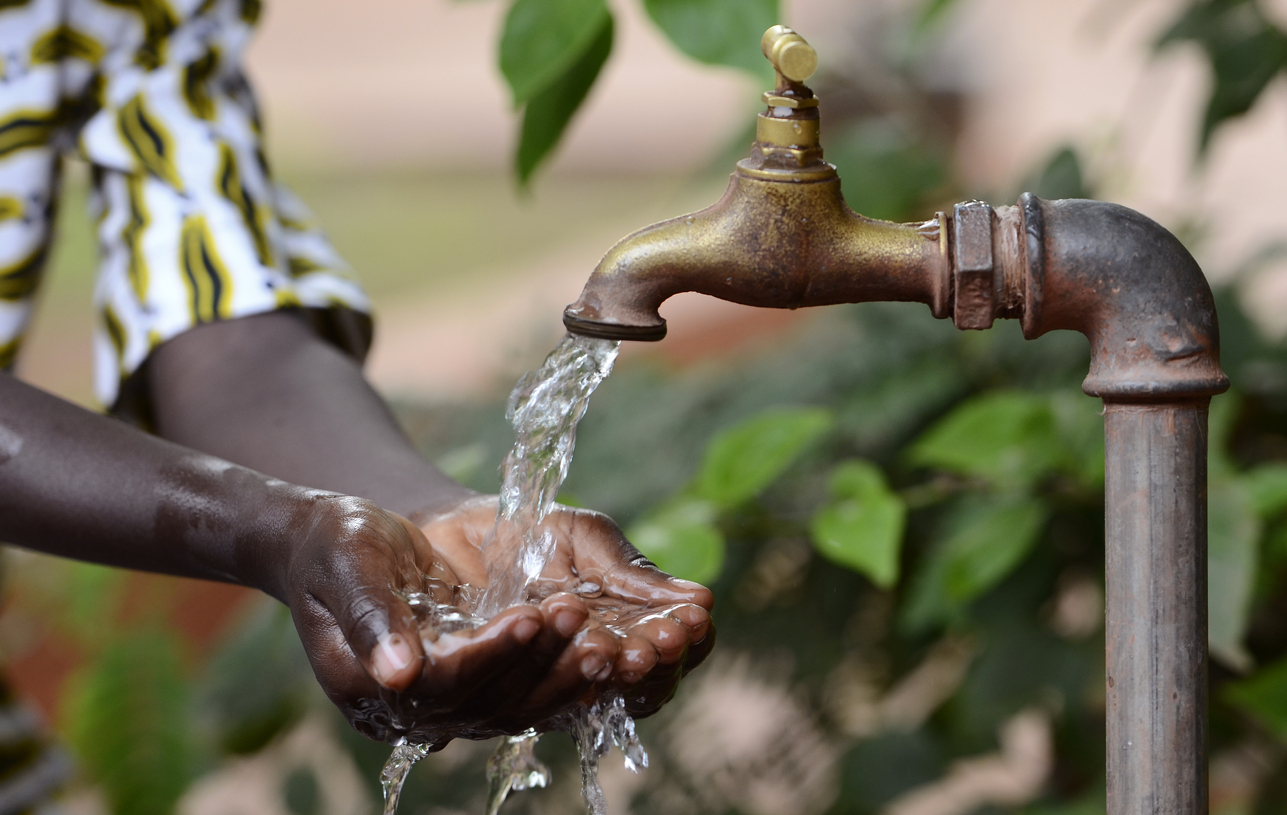Water Consultancy in Africa: Tackling Challenges, Creating Solutions
Water Consultancy in Africa: Tackling Challenges, Creating Solutions
Welcome to our blog post on water consultancy in Africa, where we dive deep into the challenges faced and the innovative solutions being created. As we all know, access to clean and safe water is a fundamental human right, yet millions of people in Africa still lack this basic necessity. But amidst these challenges lies hope – a growing number of dedicated individuals and organizations are working tirelessly to address this issue head-on. Join us as we explore the remarkable world of water consultancy in Africa, where expertise meets determination to create lasting change for communities across the continent.
Introduction to Water Consultancy in Africa
Introduction to Water Consultancy in Africa:
Africa is a continent known for its diverse cultures, breathtaking landscapes, and rich natural resources. However, it is also home to some of the world’s most pressing water challenges. From limited access to clean drinking water to inefficient management of water resources, Africa faces numerous obstacles when it comes to meeting the growing demand for safe and sustainable water supply.
This is where water consultancy plays a crucial role. Water consultancy refers to the process of providing expert advice, solutions, and services related to various aspects of water management. In Africa, this involves working with local communities, governments, and organizations to address challenges such as water scarcity, pollution, and inadequate infrastructure.
The Need for Water Consultancy in Africa:
Africa is facing a severe water crisis that affects millions of people across the continent. According to a report by the World Health Organization (WHO), 319 million people in sub-Saharan Africa lack access to safe drinking water – that’s more than one-third of the population. Additionally, 695 million people do not have basic sanitation services.
The consequences of these statistics are dire – increased child mortality rates due to diseases caused by unsafe drinking water, hindered economic growth due to time lost fetching water instead of engaging in income-generating activities, and environmental degradation from improper waste disposal practices.
To tackle these challenges effectively and sustainably, there is an urgent need for specialized expertise in managing scarce resources like water. This is where professional consultants come into play.
The Importance of Access to Clean Water in Africa
Access to clean water is a fundamental human right, yet in many African countries, it remains an ongoing challenge. According to the United Nations, about 319 million people in sub-Saharan Africa lack access to safe drinking water. This lack of access has severe consequences on the health and well-being of individuals and communities.
Waterborne diseases such as cholera, typhoid fever, and diarrhea are prevalent in Africa due to inadequate access to clean water. These diseases can be fatal, particularly for children under five years old and vulnerable populations with weakened immune systems. In addition to the direct impact on health, the time spent collecting water from distant sources also affects education and economic opportunities for women and children.
One of the main reasons for limited access to clean water in Africa is the continent’s growing population. The current population growth rate in Africa is estimated at 2.3%, almost double that of any other region globally. As the population continues to increase, so does the demand for clean water. Many existing water sources are unable to keep up with this demand, leading to contamination and scarcity.
Climate change also plays a significant role in exacerbating the challenges of accessing clean water in Africa. Droughts have become more frequent due to changing weather patterns, making it difficult for communities reliant on rainwater or surface water sources for their daily needs.
Challenges Faced by Water Consultancy in Africa
The water sector in Africa faces numerous challenges, including scarcity, poor infrastructure, and inadequate management. As a result, there is a growing need for water consultancy services to help address these issues and improve access to safe and sustainable water resources.
One of the main challenges faced by water consultancy in Africa is the limited availability of data and information. Many countries lack comprehensive databases on their water resources, making it difficult for consultants to make informed decisions and develop effective solutions. This also leads to difficulties in monitoring and evaluating the success of implemented projects.
Another major challenge is the lack of funding for water projects. In many African countries, governments struggle to allocate adequate resources towards improving their water infrastructure due to competing priorities. This creates a significant barrier for water consultancies as they rely on government funding or grants from international organizations for project implementation.
Additionally, political instability and conflicts in some parts of Africa create obstacles for successful water consultancy projects. These issues can disrupt ongoing projects or hinder new ones from starting altogether. The unstable environment also makes it challenging to attract foreign investments which are crucial for large-scale projects.
The geographical landscape of Africa also presents unique challenges for water consultancies. The continent has vast areas with low population densities, making it difficult to provide centralized services like piped systems or wastewater treatment plants cost-effectively. Furthermore, areas with high population densities have limited space and resources available for expansion of existing infrastructure.
– Lack of Infrastructure
Lack of infrastructure is one of the major challenges faced by African countries in providing access to clean water and sanitation services. This refers to the physical structures, facilities, and systems necessary for the collection, treatment, storage, and distribution of water.
One of the main reasons for this lack of infrastructure is inadequate investment in the water sector by governments. Many African countries have limited budgets and prioritize other sectors such as energy or transportation over water. As a result, there is often insufficient funding allocated towards improving existing infrastructure or building new ones.
Another contributing factor to this challenge is rapid urbanization. With increasing population growth and migration from rural areas to cities, many urban areas in Africa are facing a strain on their existing water infrastructure. The demand for clean water outstrips supply, leading to shortages and unequal distribution among communities.
Moreover, poor maintenance and management practices also play a significant role in the deterioration of existing infrastructure. Lack of proper upkeep can lead to leaks, breaks, and blockages in pipelines that affect the delivery of clean water to communities. In addition, outdated or inefficient technologies used in treatment plants can result in high operational costs and hinder overall system performance.
The lack of infrastructure not only affects access to safe drinking water but also sanitation services. According to UNICEF, about 400 million people in sub-Saharan Africa do not have access to improved sanitation facilities.
– Limited Financial Resources
Limited financial resources are a major challenge in the water sector in many African countries. This is especially true for countries with high poverty rates and underdeveloped economies. The lack of financial resources hinders the implementation of much-needed water projects, leading to inadequate access to clean water and sanitation facilities for millions of people.
One of the key reasons for limited financial resources in the water sector is insufficient government funding. Many governments in Africa face competing priorities, such as education and healthcare, leaving little room for investment in the water sector. As a result, there is often a lack of political will to allocate sufficient funds towards developing and maintaining sustainable water infrastructure.
Moreover, external factors such as economic instability, natural disasters, and conflicts can also impact a country’s ability to invest in its water infrastructure. These events can divert existing funds towards emergency relief efforts, leaving little or no budget left for long-term water development plans.
Another contributing factor to limited financial resources is the low revenue generation from tariffs on water services. In many African countries, tariff structures are not well-designed or enforced, resulting in poor cost recovery from users. This makes it challenging for utilities to cover their operational costs and invest in new infrastructure projects.
The limited availability of skilled personnel also adds to this issue. Developing sustainable solutions requires specialized expertise that may not always be available locally. Governments often rely on external consultants or experts who demand high fees, further straining already constrained budgets.
– Political and Social Issues
Political and social issues play a significant role in shaping the water situation in Africa. These issues range from government corruption and mismanagement, to unequal distribution of resources and lack of community involvement. In this section, we will delve into some of the key political and social challenges that impact water management in Africa.
1. Government Corruption and Mismanagement:
One of the major barriers to effective water management in Africa is government corruption and mismanagement. Unfortunately, many African countries are plagued by corrupt leaders who exploit resources for personal gain rather than investing in crucial infrastructure like water systems. This leads to inadequate funding for maintenance or improvement of existing water facilities, resulting in poor service delivery and limited access to clean water for communities.
Moreover, political instability can also disrupt progress towards sustainable water management as it diverts attention away from pressing issues like improving water infrastructure or implementing regulatory policies.
2. Inequality in Water Distribution:
Another significant challenge faced by African countries is unequal distribution of water resources. Many rural areas lack access to clean drinking water due to inadequate infrastructure, while urban areas have better access but often at higher costs. This disparity can be attributed partially to historical patterns of development where cities were prioritized over rural areas for resource allocation.
Additionally, marginalized communities such as women, children, and people with disabilities face even greater challenges accessing clean water due to socio-cultural norms that restrict their rights and opportunities.
Innovative Solutions for Water Management in Africa
Water management is a critical issue in Africa, as the continent faces various challenges such as increasing water scarcity, unreliable water supply systems, and inadequate infrastructure. In order to address these challenges and ensure sustainable access to clean water for all, there is a need for innovative solutions that can effectively manage and conserve water resources. Fortunately, with advancements in technology and increased focus on sustainability, several innovative solutions have emerged in recent years.
One such solution is the use of smart technologies for efficient water management. This includes the implementation of sensor-based irrigation systems that can detect soil moisture levels and adjust watering accordingly. This not only saves water but also improves crop yields for farmers. Additionally, remote monitoring systems can be used to track water usage in homes and commercial buildings, allowing for better control and conservation of this precious resource.
Another innovative approach to managing water in Africa is through natural or nature-based solutions. These include implementing methods such as rainwater harvesting, which collects rainwater from rooftops or other surfaces for later use. This technique has been successfully implemented in many African countries and has proven to be an effective way of supplementing traditional sources of water supply.
Furthermore, decentralized wastewater treatment plants are gaining popularity as a sustainable solution for managing wastewater in urban areas where centralized sewerage systems may not be feasible due to limited resources or infrastructure. These plants use natural processes like bioremediation to treat wastewater before it is released back into the environment.
– Rainwater Harvesting
Rainwater harvesting is a sustainable and cost-effective solution for addressing water scarcity in Africa. It involves collecting, storing, and using rainwater for various purposes such as domestic use, agriculture, and recharging groundwater.
In many African countries, access to clean and safe drinking water is still a major challenge. The continent is home to 14% of the world’s population but has only 9% of its freshwater resources. This disparity is further exacerbated by climate change, which has led to irregular rainfall patterns and prolonged droughts in some regions.
Rainwater harvesting provides an alternative source of water that can supplement traditional sources such as groundwater and surface water. It also reduces the pressure on these natural resources, which are often overexploited due to increasing demand.
There are various methods of rainwater harvesting that can be implemented depending on the local climatic conditions and available resources. Some common techniques include rooftop collection systems, surface runoff collection systems, and underground storage tanks.
Rooftop collection systems involve channeling rainwater from rooftops into gutters or pipes that lead to storage tanks or cisterns. This method is suitable in areas with high rainfall intensity but low duration. Surface runoff collection systems capture rainwater from open spaces such as roads and pavements using channels or catchment areas that direct it into storage tanks or recharge pits.
– Community-led Projects
Community-led projects have emerged as a crucial approach in addressing water challenges in Africa. These are initiatives that are driven and managed by the local community, with the support of external stakeholders such as non-governmental organizations (NGOs), government agencies, and water consultancy firms. The primary goal of community-led projects is to empower communities to take ownership of their water resources and promote sustainable solutions for water-related issues.
One of the key advantages of community-led projects is their ability to address the specific needs and priorities of a particular community. By involving the people who are directly affected by water scarcity or contamination, these projects can identify and target the root causes of the problem. This participatory approach not only ensures that solutions are tailored to meet local needs but also promotes a sense of ownership and responsibility among community members.
Furthermore, community-led projects foster collaboration among different stakeholders, including government agencies, NGOs, private sector entities, and local community groups. This multi-stakeholder engagement enables diverse perspectives and expertise to come together to develop comprehensive solutions for complex water challenges. It also promotes transparency and accountability in project implementation, leading to more effective outcomes.
In addition to promoting inclusivity and collaboration, community-led projects also have a significant impact on building resilience within communities. By involving local residents in all stages of project development – from planning to evaluation – these initiatives empower individuals and communities with knowledge on how to manage their own water resources sustainably.
– Technology Integration
Technology plays a crucial role in addressing the challenges faced by water consultancy in Africa. With the rapid development of technology, there is a growing need to integrate innovative solutions into traditional water consulting practices. This integration can enhance efficiency, accuracy and effectiveness in tackling the challenges of water scarcity, poor sanitation, and inadequate access to clean drinking water.
One of the major challenges faced by water consultancy firms in Africa is data collection and analysis. Traditional methods of collecting and analyzing data can be time-consuming, labor-intensive, and often result in inaccuracies. However, with the use of advanced technologies such as Geographic Information Systems (GIS), remote sensing tools, and data analytics software; consultants can now collect and analyze large amounts of data in a fraction of the time it would take using traditional methods.
The integration of GIS technology has been particularly beneficial for water consultancy firms working on projects involving mapping and spatial analysis. GIS allows for the creation of accurate maps that show various elements related to water resources such as rivers, lakes, groundwater sources, distribution networks, etc. These maps provide valuable insights into the location and availability of water resources which is essential for making informed decisions about resource management.
Success Stories of Water Consultancy in Africa
Africa is a continent that has been facing various challenges in the water sector for decades. Limited access to clean and safe water sources, inadequate sanitation facilities, and inefficient water management systems have all contributed to the water crisis in many African countries. However, despite these challenges, there have been numerous success stories of water consultancy projects making a positive impact on communities across the continent.
One notable success story is the Water for Rural Africa project in Kenya. This project was initiated by a team of experienced consultants who identified a pressing need for sustainable water solutions in rural areas of Kenya. These areas were facing severe droughts and had limited access to clean drinking water. The consultants worked closely with local communities to understand their needs and then implemented innovative solutions such as rainwater harvesting systems and solar-powered boreholes. As a result, over 50,000 people now have access to clean and reliable water sources, leading to improved health outcomes and increased agricultural productivity.
Another success story comes from Ethiopia where the WATERWORX project was implemented by an international consulting firm in partnership with the government. This project aimed at rehabilitating existing irrigation schemes that had fallen into disrepair due to lack of maintenance. Through technical expertise and community involvement, the consultants were able to increase crop yields by 30% within just one year of implementation. This not only provided economic benefits but also ensured food security for hundreds of households.
The Role of NGOs and Government Organizations
The Role of NGOs and Government Organizations in Water Consultancy in Africa
Water is a basic human need and a fundamental right for all individuals. In Africa, access to clean and safe water remains a major challenge, with millions of people lacking access to this essential resource. To address this issue, Non-Governmental Organizations (NGOs) and government organizations play a critical role in providing water consultancy services across the continent.
NGOs have been at the forefront of tackling water-related challenges in Africa. These organizations are driven by their mission to improve the lives of people through sustainable solutions for clean water access. They work closely with communities, local governments, and other stakeholders to identify areas where they can provide support.
One key role of NGOs is conducting needs assessments to determine the specific challenges faced by communities in accessing clean water. This involves gathering data on existing water sources, quality of water, and availability within the region. With this information, NGOs can develop targeted solutions that are tailored to meet the unique needs of each community.
Another crucial role played by NGOs is community mobilization and capacity building. Many rural communities lack knowledge about proper hygiene practices or how to maintain their water sources properly. NGOs conduct training programs on sanitation and hygiene practices that promote healthy living while also educating community members on how to manage their water resources sustainably.
Future Outlook
The future outlook for water consultancy in Africa is full of both challenges and opportunities. As the continent continues to face water scarcity, pollution, and inadequate infrastructure, there is a growing need for innovative solutions and expertise in the field of water management.
One of the major challenges that Africa will have to tackle in the coming years is population growth. With an estimated population increase of 1.3 billion by 2050, the demand for clean and accessible water will only continue to rise. This puts pressure on governments and organizations to invest in sustainable solutions that can meet the increasing demand.
Another key challenge facing Africa’s water sector is climate change. The continent has been experiencing more frequent droughts, floods, and other extreme weather events that have a direct impact on water availability and quality. As such, there is a crucial need for effective adaptation strategies that can help mitigate these effects.
In addition to these challenges, there are also significant opportunities for growth and development in the water consultancy sector in Africa. Many African countries are experiencing rapid economic growth, leading to increased investment in infrastructure projects such as dams, pipelines, and treatment plants. These projects require expert guidance from water consultants to ensure they are implemented sustainably and with minimal impact on the environment.
Moreover, advancements in technology offer new possibilities for improving access to clean water across the continent. Technologies such as desalination plants, rainwater harvesting systems, and solar-powered pumps have great potential for addressing some of Africa’s most pressing water issues.








Comments are closed.